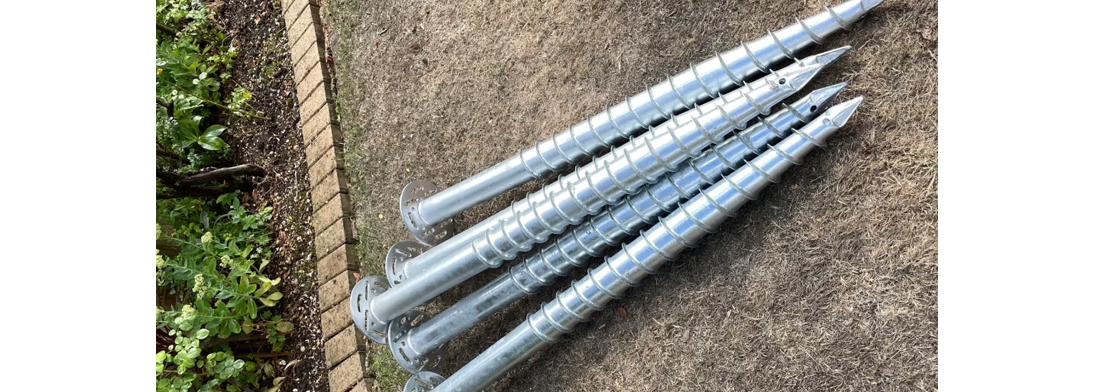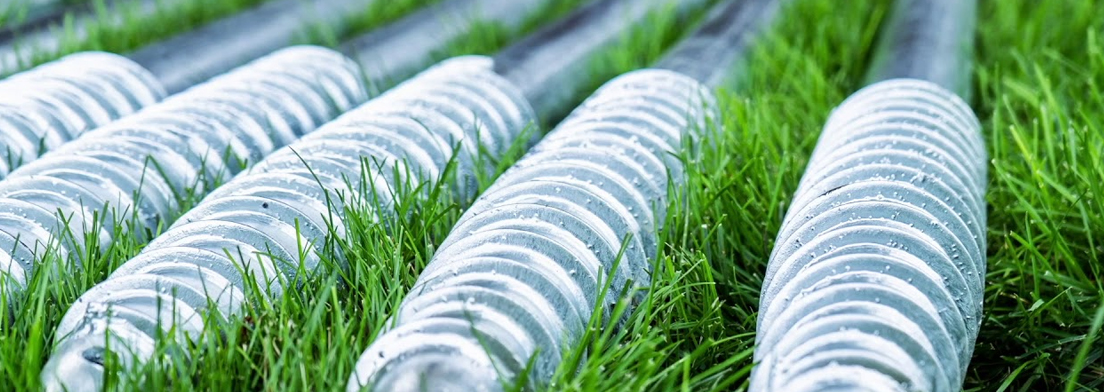When installing ground-mounted solar systems, the foundation choice is critical for project success. Traditionally, concrete foundations have been the go-to option, but ground screws are quickly gaining popularity as a superior alternative. Here’s why ground screws are often the better choice for solar installations.

Concrete foundations require excavation, formwork, curing, and backfilling, which can take days or even weeks. In contrast, ground screw anchors can be installed in a matter of hours with minimal site preparation. This speed translates to reduced labor costs and faster project completion.
Concrete foundations involve significant soil disturbance and material usage. Ground screw poles, on the other hand, require no excavation, preserving the natural landscape and reducing the carbon footprint of the installation. They can also be removed and reused, making them an environmentally friendly choice.
While concrete may seem cheaper initially, the total cost—including labor, excavation, and curing time—can make it more expensive in the long run. Earth screws eliminate many of these costs and provide a predictable installation process, reducing financial uncertainties.
Ground screws can be used in a wide range of soil types, including rocky, sandy, and clay-heavy soils, where traditional concrete foundations may struggle. Their adaptability makes them ideal for challenging terrains where excavation might be difficult.

Concrete installations typically require excavators, mixers, and trucks, increasing logistical complexity and costs. screw piles, on the other hand, can be installed with lightweight machinery, making them more accessible and practical, especially in remote areas.
Properly installed ground screws provide excellent load-bearing capacity and resistance to soil movement, offering stability comparable to or even better than concrete foundations. They are also less susceptible to frost heave, making them a durable choice for long-term solar projects.
Ground screw pile foundation offer a faster, more cost-effective, and environmentally friendly alternative to concrete foundations for solar installations. Their adaptability, ease of installation, and minimal site disruption make them an ideal choice for modern solar projects. As the industry continues to prioritize efficiency and sustainability, ground screws are proving to be the future of solar mounting solutions

 Xiamen TopFence Co.,Ltd.
Xiamen TopFence Co.,Ltd. No. 77, LingXia South Road, Huli District, Xiamen City, Fujian, China
No. 77, LingXia South Road, Huli District, Xiamen City, Fujian, China Tel: +8613365923720
Tel: +8613365923720
 Email: info@xmtopfence.com
Email: info@xmtopfence.com
 IPv6 network supported Sitemap
| XML
| Blog
| Privacy Policy
IPv6 network supported Sitemap
| XML
| Blog
| Privacy Policy


